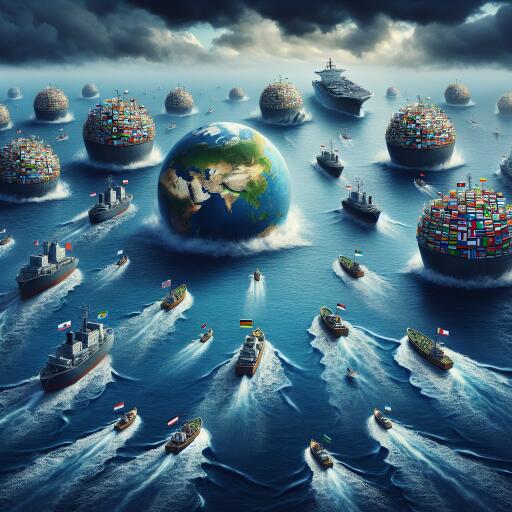
Ronald Sanders | Small states in global arena: Navigating survival and sovereignty
In the complex tapestry of the global framework, small states find themselves fighting for sovereignty and survival amidst dominating structures that often leave them at a disadvantage. These structures, encompassing the global economy, financial systems, and trade agreements, not only marginalize these nations but appear specifically designed to work against them. This struggle encompasses a broad spectrum of challenges, from developmental constraints due to limited resources to the monumental threats posed by climate change. Yet, these states strive to endure under harsh circumstances.
The emergence of small states as independent entities, marking their presence on the world stage after decolonization, did not alleviate their inherent disadvantages. With small land masses, limited populations, and constricted access to development funds, these nations often depend on foreign aid. It’s important to emphasize that such aid frequently comes with strings attached, aiming not just to assist but to secure a form of dependency or allegiance, strategically benefiting the donor countries.
The dilemma for these small states lies in their desperation for economic and social advancements, which their meager resources cannot sustain, prompting them to accept, sometimes seek, external assistance. This dependency, while critical, often compromises their ability to autonomously decide their fate, aligning their national policies more closely with those of their benefactors than their own development agendas.
Without changes in the global structure to offer equitable financing and support based on objective development needs—be it infrastructure improvement, climate change resilience, or fair trade—small states remain cornered into accepting terms dictated by those holding the purse strings. These conditions, some overt and others subtly enforced, continue to hamper their progression towards autonomy and prosperity.
In this narrative of struggle and perseverance, the question arises: How can small states not just survive but flourish within a system that inherently disadvantages them? There are fifty small states identified by the World Bank, primarily in the Caribbean and the Pacific, attempting to navigate these turbulent waters. Efforts at solidarity have been made, yet alignment within larger blocs of developing countries has often led to conflicting interests, diluting the effectiveness of these collaborative attempts.
The impact of global crises on these small nations is both profound and persistent. Economically, the fallout from events such as the COVID-19 pandemic has worsened fiscal conditions and heightened debt vulnerabilities. Geopolitical tensions leading to spikes in fuel and food prices further strain their recovery efforts, with inflation exacerbating the cost of international borrowing, especially for those already under the weight of significant debt.
Climate change represents a critical and existential threat, with small island nation-states standing on the frontlines. The rise in sea levels, increased frequency of severe weather events, among others, devastates their economies and jeopardizes their very survival.
However, there is a glimmer of hope and unity through the Alliance of Small Island States (AOSIS), a collective operating out of the United Nations in New York. AOSIS has developed into a crucial platform for articulating shared concerns and negotiating positions. By potentially broadening its engagement beyond UN frameworks and annual climate conferences, AOSIS could amplify its influence, advocating more powerfully for its members’ interests on the global stage.
A case in point is the recent initiative led by two AOSIS members seeking an opinion from the International Tribunal of the Law of the Sea (ITLOS), which set a new benchmark in international law that benefits all small island states in their negotiations on climate change impacts. This move, alongside the outcomes of the 4th UN Small Island Developing States (SIDS) Conference, underscores the urgent need for comprehensive global support in addressing the unique challenges these nations face, particularly concerning sustainable development and debt management.
For small states to transcend their current predicaments, visionary leadership is paramount. Leaders must champion their causes with unwavering resolve, employing strategic acumen to craft clear objectives and credible plans that highlight not only the benefits for their own countries but also for the global community. In confronting the myriad challenges posed by the international system, passive waiting is not an option; their survival and sovereignty depend on proactive advocacy for change and justice.





Leave a Reply